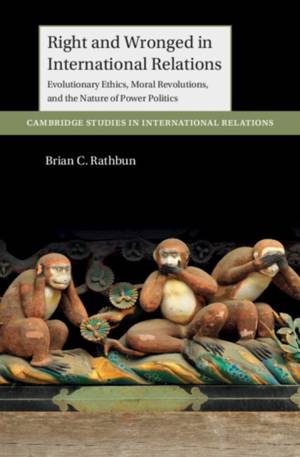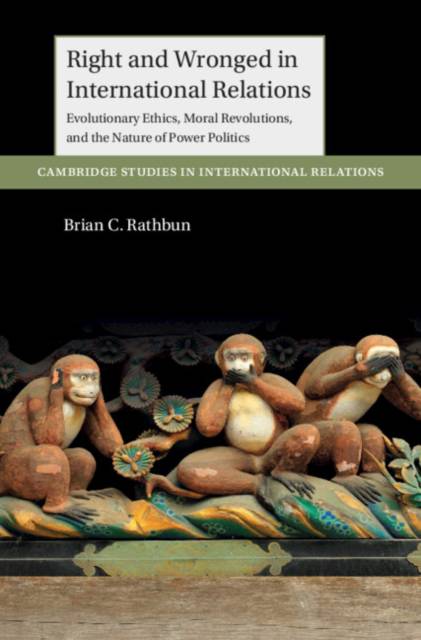
Je cadeautjes zeker op tijd in huis hebben voor de feestdagen? Kom langs in onze winkels en vind het perfecte geschenk!
- Afhalen na 1 uur in een winkel met voorraad
- Gratis thuislevering in België vanaf € 30
- Ruim aanbod met 7 miljoen producten
Je cadeautjes zeker op tijd in huis hebben voor de feestdagen? Kom langs in onze winkels en vind het perfecte geschenk!
- Afhalen na 1 uur in een winkel met voorraad
- Gratis thuislevering in België vanaf € 30
- Ruim aanbod met 7 miljoen producten
Zoeken
Right and Wronged in International Relations
Evolutionary Ethics, Moral Revolutions, and the Nature of Power Politics
Brian C Rathbun
€ 50,45
+ 100 punten
Uitvoering
Omschrijving
Brian Rathbun argues against the prevailing wisdom on morality in international relations, both the commonly held belief that foreign affairs is an amoral realm and the opposing concept that norms have gradually civilized an unethical world. By focusing on how states respond to being wronged rather than when they do right, Rathbun shows that morality is and always has been virtually everywhere in international relations - in the perception of threat, the persistence of conflict, the judgment of domestic audiences, and the articulation of expansionist goals. The inescapability of our moral impulses owes to their evolutionary origins in helping individuals solve recurrent problems in their anarchic environment. Through archival case studies of German foreign policy; the analysis of enormous corpora of text; and surveys of Russian, Chinese, and American publics, this book reorients how we think about the role of morality in international relations.
Specificaties
Betrokkenen
- Auteur(s):
- Uitgeverij:
Inhoud
- Aantal bladzijden:
- 404
- Taal:
- Engels
- Reeks:
Eigenschappen
- Productcode (EAN):
- 9781009344685
- Verschijningsdatum:
- 10/08/2023
- Uitvoering:
- Paperback
- Formaat:
- Trade paperback (VS)
- Afmetingen:
- 152 mm x 229 mm
- Gewicht:
- 539 g

Alleen bij Standaard Boekhandel
+ 100 punten op je klantenkaart van Standaard Boekhandel
Beoordelingen
We publiceren alleen reviews die voldoen aan de voorwaarden voor reviews. Bekijk onze voorwaarden voor reviews.









